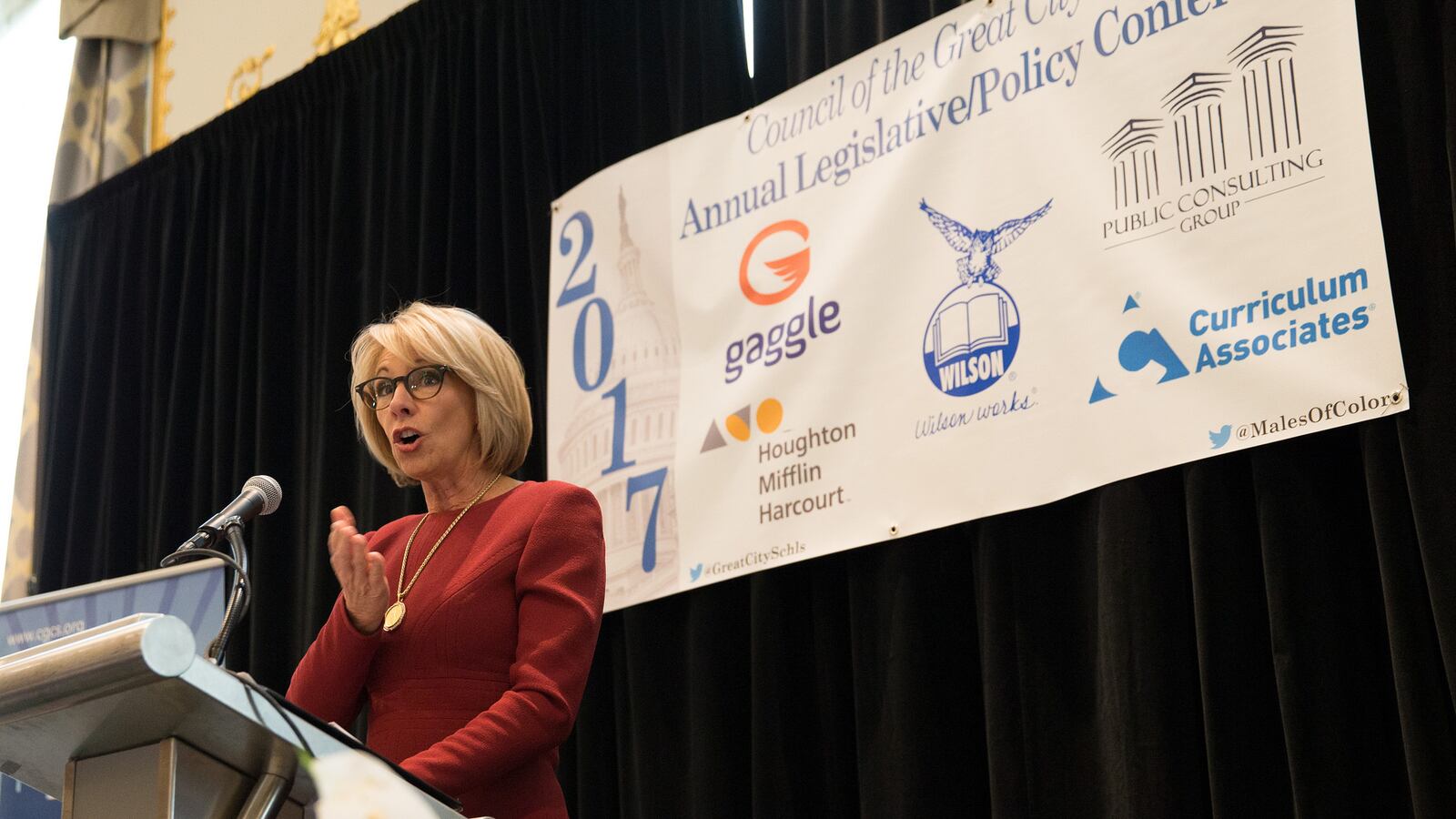Last week’s headlines were dramatic: “Obama education rules are swept aside by Congress.” “Senate dumps Obama rule for holding schools accountable.”
You might think that education officials across the country were scrambling to respond to the changes. But in many of the state education departments that are responsible for turning federal rules into local policies, it’s business as usual.
“Our state plan will not be impacted,” Tennessee Education Commissioner Candice McQueen said in a statement. Her counterpart in New York, MaryEllen Elia, said it won’t require big changes. So did schools chiefs across the country, from Oklahoma to Rhode Island.
That’s because the rolled-back regulations — which included some guidelines for how states should help low-performing schools and deal with districts where many students opt out of state tests — were not actually written into the federal education law, known as the Every Student Succeeds Act. Instead, the Obama administration issued them last year in an effort to safeguard its education approach.
States are currently locked in a process of translating federal regulations into their own plans. The first deadline to do that is next month, and the expectation that a new administration would reconsider the Obama-era regulations gave state officials little reason to take the now-rolled-back rules into account.
“We have intentionally drafted our ESSA plan in alignment with the language in the statute itself, not with the language of the regulation,” McQueen said.
“We’ve been directed to focus on the statute part of ESSA, and not the rule-making process,” said Indiana’s schools chief, Jennifer McCormick. “With community and stakeholder input, we will craft our accountability rules in relation to the ESSA statute section we’ve been directed to follow.”
A new guidebook from the U.S. Education Department out this week offers a clearer picture of what’s changing — and at the top of the list is a requirement for states to get input from community members. Now, states don’t have to get feedback, though they can if they want to.
“Eliminating the requirement for public input is the perfect illustration of the Trump administration’s attempt to shutter transparency and remove the public from policy making,” said Jared Polis, the lead Democrat on the House’s Early Childhood, Elementary and Secondary Education subcommittee. “Fortunately, states like Colorado have already undergone an extensive stakeholder engagement process to include diverse points of view in their state plan.”
States are unlikely to scrap efforts to solicit public feedback. Many have already concluded engagement meetings — Colorado held more than 180 — or already have them on the calendar. New York, for example, launches a round of meetings next week.
Even though the rule change isn’t making waves at state education departments, advocates are still paying close attention to what it might augur for the Trump administration’s education agenda. So far, President Trump has rolled back protections for transgender students and asked Congress to craft a bill to expand school choice — with more details expected in his first budget proposal this week.
Advocates see the ESSA rule reversal as part of a broader shift against holding states accountable for reaching all students.
“I am highly disappointed that Congress has weakened legislation by removing rules to protect marginalized students,” Los Angeles teacher Misti Kemmer said in a statement issued by Educators 4 Excellence, a teacher advocacy group. “I sincerely hope that state leaders will remember our traditionally underserved students as we move forward with state ESSA plans.”


